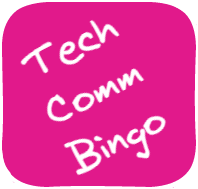Turns out I’m pretty good at editing. Who knew?! Certainly not me. I thought everyone had it. Every tech writer is probably a good editor, aren’t they?
My experience as a tech writer over the years has left me ideally suited to tech editing. Some of it is innate, some of it learned. Have a read and see if this describes you - if you’re a tech writer, perhaps your next career move is into editing?
Start with instinct
When I think about how I edit, the process feels internal (my gut? my heart?). I do a lot of it by “feel”. Eva Parish touches on this idea in the article, What I think about when I edit:
“Recently, someone asked me how I edit. What am I looking for? How do I know what changes to make? That made me stop and think about what I’ve been doing semi-instinctually.”—Eva Parish
It’s that “stop and think” moment (cue needle-scratch sound effect) that pulls you up and makes you really wonder how you perform the craft.
Is editing a learned or innate skill? Paula Robertson says the answer is “both.” In Eye for Editing: Learned or Innate?, Paula submits that some of us are just born with the “ability to notice when something in a text is not right.”
Sally-Anne Watson Kane also wrote about this in the piece, Is proofreading innate or can it be learned?. Sally-Anne used to think it was a natural or innate talent, but eventually decided the key is to have a love of words.
“Regardless of your ‘innate’ or ‘natural’ talent, you’ve really got to love looking and thinking about how words go together.” —Sally-Anne Watson Kane
Bring your tech writer know-how
On top of having an affinity with words and how they go together, editing skills need two more things:
- Knowing what to do to improve the text
- Being able to communicate effectively about your edits
These abilities are entirely learnable, and if you’re a technical writer, you’ve probably already got them. Tech writers bring a lot of skills to the editing table:
- Analytical skills - Most tech writers have great analytical skills and these come in really handy when you’re editing. Working at both the macro and micro level, you can review overall structure and zoom in to punctuation. At university, I studied linguistics, semantics, and semiotics. These subjects developed my ability to analyze. Analytical skills are totally transferable.
- Reader advocacy - Tech writers have a deep understanding of their readers. They need to know how their users consume the information and, more broadly, how readers read. This informs decision-making about how to best present information for readers to consume.
- Writer empathy - As a writer, you know how hard writing is—so you’re more able to empathize with the author, and be respectful and compassionate in your feedback language.
- Communication skills - To be a great editor, you need communication skills. Most tech writers have this in spades because one of the key duties is eliciting information from SMEs. That means adjusting our communication approaches to best suit the SME so we can get on with our jobs. Having great communication skills helps build strong author/editor relationships.
- Understanding context - Seeing the broader view around a piece of writing is where editors can really add value, and is a skill that most tech writers have. Knowing where a piece of text fits within an overall structure of information architecture, and content strategy, is vital to make it fit for purpose.
Suffice it to say that your technical and software skills, curiosity, and attention to detail lend themselves to helping others be the best writer they can be.
Formalize your skills
Having a natural aptitude doesn’t mean you can be complacent. It’s always good to pursue professional development to strengthen your skills and be confident (if only to mitigate imposter syndrome).
Check out my Resources page. Consider doing a course or join a professional organization in your area. Hang with us in the #tech-editor channel on Write the Docs Slack.
——
Image credits: Chrysalis photo from Bankim Desai on Unsplash.



